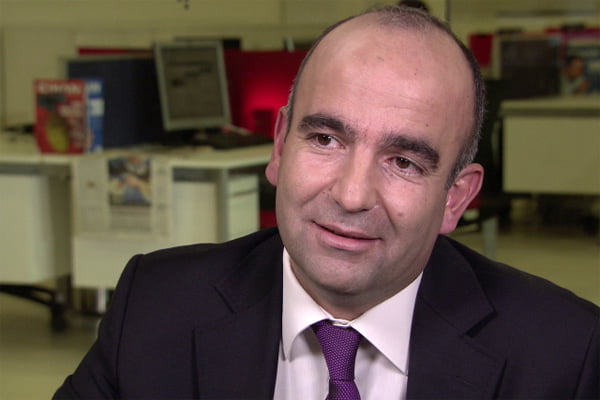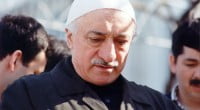Strategic defamation by Stratfor

Date posted: March 18, 2012
Abdulhamit Bilici, March 18, 2012 (originally published on September 2, 2010)
A few weeks ago, an American researcher by the name of Reva Bhalla came to visit us upon a reference from a good friend of ours. He told us that he was researching political inclinations in Turkey on behalf of the Stratfor intelligence firm. He asked questions about many subjects, from the Ergenekon case to the Gülen movement and from Turkey’s shifting foreign policy to the upcoming referendum. We tried our best to answer his questions. And when we were finished we advised him to speak with people who held opposing views so that he could examine the entire picture.
| These days the anti-secrecy group WikiLeaks is publishing more than 5 million emails from a US-based global security analysis company, Stratfor, some emails emerged in regards to Turkey and Gulen movement. This column is about a visit to Turkey by Stratfor researcher almost one and a half years ago. We like to publish it again as it will give the reader a different perspective. |
A Western journalist who held the position of Time magazine’s representative in Turkey for a very long time had an interesting observation about our media. He argued that Turkish newspapers generally distort published speeches. According to this journalist, private television channels, whose numbers were on the rise at the time, were an important opportunity to cure this illness in the Turkish media because it was more difficult for journalists to intervene between the person speaking on television and the audience. A politician, artist or a regular citizen would speak his or her mind and the audience would hear them out verbatim. Unfortunately, our media, whose reputation is highly questionable, cannot exactly be defended in the face of this accusation. But an incident last week demonstrated to me that foreign reporters and investigators don’t exactly have the cleanest slate in terms of their reliability and that they, too, can greatly distort the material at hand when preparing news pieces or reports.
A few weeks ago, an American researcher by the name of Reva Bhalla came to visit us upon a reference from a good friend of ours. He told us that he was researching political inclinations in Turkey on behalf of the Stratfor intelligence firm. He asked questions about many subjects, from the Ergenekon case to the Gülen movement and from Turkey’s shifting foreign policy to the upcoming referendum. We tried our best to answer his questions. And when we were finished we advised him to speak with people who held opposing views so that he could examine the entire picture.
| It also untruthfully claims that the Zaman daily is distributed for free and that Sabah is an Islamist newspaper. It says Türkiye Finans has changed its name and become Bank Asya. There are many other wrong claims that are completely baseless. I will call my Western journalist friend and tell him not to be suspicious just about the Turkish press, but also about Western researchers. In the meantime, let the think-tank Stratfor — which was established by George Friedman, who has pointed to Turkey as a future world leader — figure out what it will do about all these mistakes that were made on its behalf. |
Reading the report the researcher sent me via email on July 23, I felt sorry to see that my well-intentioned recommendation did not work. For the researcher penned a one-sided report instead of mentioning all sides of the issue. Though we had explained that the struggle in Turkey was between circles that support change and those that oppose it, the report sought to cast it as a battle between Islamic and secularist circles.
Within this perspective, liberal intellectuals who appear as the driving forces behind this struggle, atheist and agnostic social democrats, journalists such as Ahmet Altan and Yasemin Çongar, who have no ties to any religion, and others such as Hrant Dink, Etyen Mahçupyan and Roni Margulies who come from a non-Muslim background, democratic Kurdish intellectuals who share a Marxist history and many others were mentioned as part of an Islamic front.
The response to the report’s mention of secularism came from Ahmet Kuru, an assistant professor in the department of political science at San Diego State University. The problematic side of the report, a part of which I witnessed during its preparation, is not limited to its presentation of concepts or notions. It also has problems with objectivity, a principle most researchers encourage in the West. While the researcher cites accusations of “pro-violence” beliefs and “extreme radicalism” by the most fervent opponents of the Gülen movement, is it not mind-bogging that he does not mention any of the actual activities of the movement? The report criticizes the movement as “close to dialogue with other religions abroad but Islamist inside Turkey,” but it turns a blind eye to the fact that the Gülen Movement has been the target of extremist groups due to its pro-dialogue activities in Turkey. It does not make mention of Fethullah Gülen’s meetings with Pope John Paul II and Fener Greek Patriarch Bartholomew.
Had there been even the slightest mention of the Abant Platform, the international readership of this report would be able to see the character of this movement, which brings together individuals from very different political, ethnic and religious groups. This can be seen in its ability to bring together Hayrettin Karaman and Mehmet Ali Kılıçbay or Ali Bulaç and Mete Tunçay around the same table. Even if Abant was forgotten, the report could have talked about Gülen’s attitude toward terrorism disguised as Islam. Were Gülen’s words, “I hate Bin Laden,” which had made the headlines of the Zaman daily, left out for fear that these might create a positive impression about the movement?
In addition to violating of the principle of objectivity, the report, which mentions the evidence used in a court case against Gülen but leaves out the court’s ruling for acquittal, also suffers from the deeply problematic fact that most of its information is either wrong or an outright lie. The report wrongly claims that four Turkish schools in northern Iraq were shut down. It claims textbooks distributed for free are published by a company close to Gülen. It says Iran — which is one of the few countries where not a single Gülen school has been opened — has shut down all Gülen schools. It untruthfully suggests that Gülen has been making positive statements about Hakan Fidan, the newly appointed National Intelligence Agency (MİT) undersecretary.
It also untruthfully claims that the Zaman daily is distributed for free and that Sabah is an Islamist newspaper. It says Türkiye Finans has changed its name and become Bank Asya. There are many other wrong claims that are completely baseless. I will call my Western journalist friend and tell him not to be suspicious just about the Turkish press, but also about Western researchers. In the meantime, let the think-tank Stratfor — which was established by George Friedman, who has pointed to Turkey as a future world leader — figure out what it will do about all these mistakes that were made on its behalf.
Source: Today’s Zaman http://www.todayszaman.com/columnistDetail_getNewsById.action?newsId=220717
Tags: Defamation of Hizmet |
























